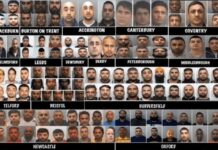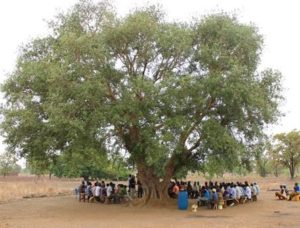
Houston, TX (ANS) – We are certainly living in a time where we need a lot of clarification on a wide range of issues. In the Orality Movement, we are dealing with it on a regular basis. Many people make judgements based on limited awareness and knowledge. Often the problem is being exposed to the wrong source or a distorted perspective. Of course, we don’t know what we don’t know, and in many cases there’s a lack of curiosity to learn more.
A friend of mine likes to ask what he calls “Fog Cutting Questions.” It’s an excellent way of getting clarity and focus on almost any topic. It’s especially needed in the area of spiritual matters and the priority in ministry. There is obviously a great deal of confusion, misinformation and deception in the world these days. There is a tremendous need to ask clarifying questions.
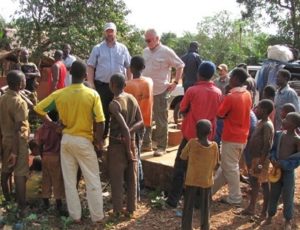
Our Priority for Life and Ministry
When we consider God’s will and purpose, many followers of Jesus struggle with what should be our priority for life and ministry. Of course, every believer in Christ has opportunities for ministry and service, almost daily. Scripture is very clear about what God wants us to do. It’s what we know as our Lord’s Great Commission, which also includes the Great Commandment. In essence, it’s about demonstrating the love of Jesus, communicating the gospel to everyone and making disciples of all people groups.
A couple of important fog cutting questions are; “How do we do it?” And, “What are our personal responsibilities?” When we consider the priesthood of every believer, we realize that everyone has a role in completing the Great Commission. With all the resources available to us now, every follower of Jesus can be involved in reaching and discipling those around us, as well as around the world. Communicating the Gospel to every person on earth and making disciples among all people groups is a major task. Another consideration in the global context is the fact that several hundred people groups have no Scripture in their heart language, and many have no access to Bibles or written materials. They are in Oral Cultures or are Oral Learners. This is where Orality becomes an important topic.
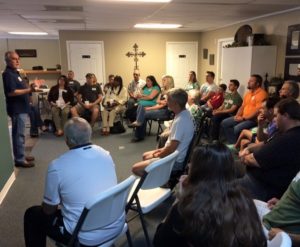
Asking Fog Cutting Questions
Some additional fog cutting questions are:
- How have most people come to faith in Christ over the past 2,000 years?
- What are the most effective ways that people have learned and communicated from the beginning of time?
- Why is the Church growing faster in the Global South?
- What can those of us in the Global North learn from the rapidly reproducing disciple making and church planting movements in the Global South?
- How can we best use the tools of the age, and the tools of the ages to advance the Kingdom of God?
- Why do the majority of professing Christians today never share their faith or attempt to lead others to Christ?
- What are the simple lessons from the life of Jesus that His followers should focus on today?
It is interesting to consider that we don’t have to have all the answers, but simply asking the right questions can lead us to profound insights and applications. God’s truth is not complicated and He does not want us to be confused about what He wants us to do.
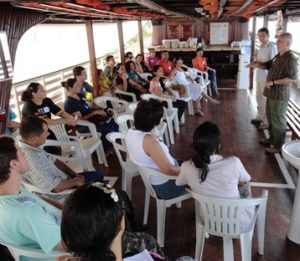
A Global Community of Learning and Practice
In our Orality journey, many more people are becoming aware and interested, and are recognizing the significance of this movement. Yet, many only relate it to Bible Storytelling, the use of some recording devise or other technological resource. However, in our global community of learning and practice in the Orality Movement, there is greater awareness and understanding of the depth and breadth of the concepts and principles of Orality. There are many Oral Art Forms that are now being discussed and used around the world, and the opportunities for learning and cross-pollenating are growing tremendously.
Orality practitioners and trainers at the grassroots level are now connecting more with the academic communities and institutions. More collaboration is also taking place between Bible translators, leaders of literacy programs and those with modern digital technology.
Concepts of Orality, and Their Multiple Applications
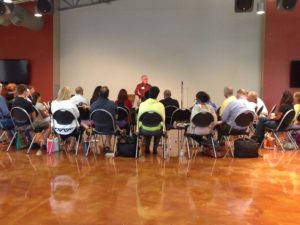
In our experience with Orality Training, we’re finding that people are being equipped to live godly lives and more effectively share their faith in everyday encounters. This really is the cutting edge and first step for anyone desiring to fulfil God’s will and purpose. The concepts of Orality are also being effectively used for community development, hygiene training, racial reconciliation and much more.
The late Dr. Avery Willis, and other global mission leaders, have said that the Orality Movement is one of the most significant breakthroughs that has taken place in the past 500 years. It’s actually something that has been missing or neglected for the most part since the Early Church. Think about how the gospel spread throughout the entire populated world in the First Century. Another fog cutting question might be, “Why has it not happened again since then?” Global missiologist, Dr. Thom Wolf has said that the 21st Century Church may look a lot like the First Century Church.
Tools of the Age, and Tools of the Ages
It is a great blessing to have access to all the modern technological resources of our time. However, there is no substitute for the work of the Holy Spirit through obedient followers of Jesus. It is His work through us that will produce lasting fruit. Telling stories (God’s Story and our story) and asking questions are simple ways of joining God in His redemptive activities. We like to emphasize the value of learning a little, practicing a lot and telling the stories often. It’s better to know a little that we tell a lot, than to know a lot that we keep to ourselves. One of my friend’s parting statement is always, “Keep the faith, just don’t keep it to yourself.”
For more information on Orality resources, training opportunities, and other events, visit – www.orality.net or www.water.cc/orality.




